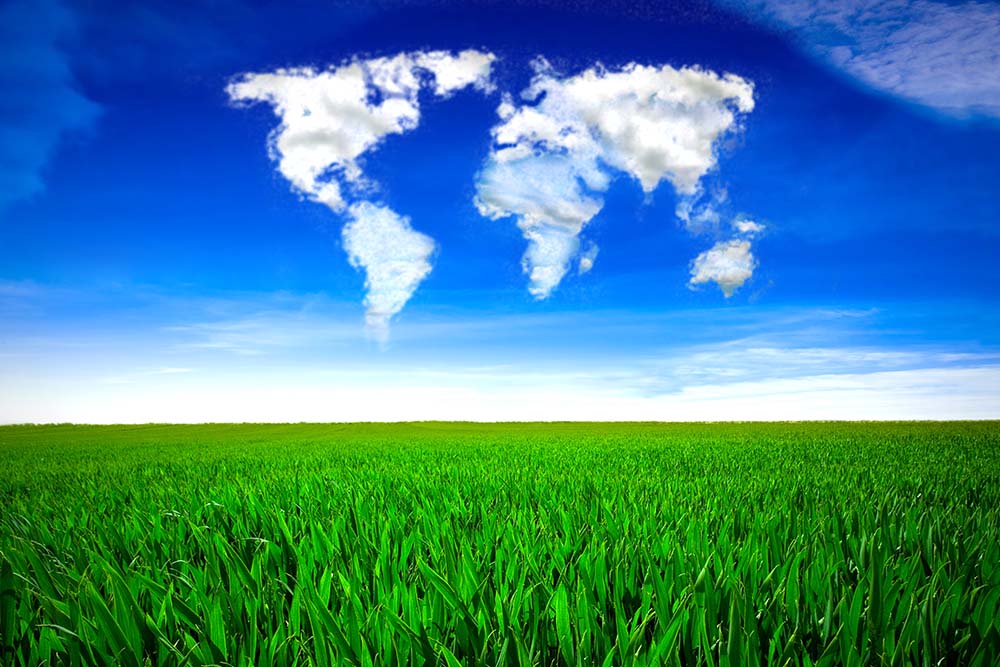
- Details
- By Smithsonian’s National Museum of the American Indian
Online Festival Features Native American Business Representatives, Films and Youth Leaders on Sustainability and Innovation in Indigenous Agriculture
In celebration of Earth Day, the Smithsonian’s National Museum of the American Indian presents its annual Living Earth Festival, available online and on demand this year. The four-day festival will bring together Native innovators and practitioners dedicated to using Indigenous knowledge to protect and sustain the environment. Through conversations, cooking demonstrations and film screenings, this year’s festival explores agriculture trends, innovations and sustainability in Indigenous communities and Native-owned businesses. All events will stream at americanindian.si.edu/living-earth.
The festival will open with a message from Notah Begay III (Navajo/San Felipe/Isleta), four-time PGA Tour champion, sportscaster and founder of the Notah Begay III Foundation, which provides health and wellness education to Native youth.
The festival is made possible through the support of the Native American Agriculture Fund. This program will be followed by a webinar series in the summer and fall titled “Part II: Voices from the Field: The Business of Native Agriculture.” In the second series, Native farmers and ranchers will discuss sustainable food systems and agricultural economic development in their Nations.
Schedule:
Building an Agriculture Business in Indian Country
Experts address a crucial issue—creating innovative, robust and ecologically sound food systems and agricultural businesses in Indigenous communities. Speakers include Dawn Sherman (Lakota/Delaware/Shawnee), CEO of Native American Natural Foods; Mark N. Fox, Chairman, Mandan, Hidatsa and Arikara Nation; and Leonard Forsman, Chairman, Suquamish Tribe. Moderated by Carmen Davis (Makah/Chippewa Cree/Yakama), editor of Native Business magazine.
Youth in Action: Sustainable Agriculture
This panel discussion brings together young Indigenous leaders to address the role that traditional ecological knowledge plays in their work as farmers and entrepreneurs. Moderated by Michaela Pavlat (Sault Ste. Marie Tribe of Chippewa Indians). Panelists include Kelsey Ducheneaux-Scott (Cheyenne River Sioux Tribe), Jack Poshano (Hopi) and Marco Ovando (Shoshone-Paiute Tribe).
Cooking Demonstration
Mariah Gladstone (Blackfeet/Cherokee Nation), founder of Indigikitchen, an online cooking platform, will explore traditional Indigenous foods and show how to incorporate them into people’s everyday lives.
Film Screenings:
Gather
(USA,2020,74 min.)
Director: Sanjay Rawal
Producer: Sterlin Harjo (Seminole/Creek)
Gather is an intimate portrait of the growing movement amongst Native Americans to reclaim their spiritual, political and cultural identities through food sovereignty, while battling the trauma of centuries of genocide.
Voices from the Barrens: Native People, Blueberries and Sovereignty
(USA, 2020, 56 min.)
Director: Nancy Ghertner
Canadian Director: Brian J. Francis (Mi’kmaq)
This film documents the wild blueberry harvest of the Wabanaki, who live in both the United States and Canada.
Crow Country: The Right to Food Sovereignty
(USA, 2020, 21 min.)
Director: Tsanavi Spoonhunter (Northern Arapaho/Northern Paiute)
Crow Country follows several tribal members who are fighting for better food and a better future for their community.
One Word Sawalmem
(USA, 2019, 18 min.)
Director: Natasha Deganello Giraudie
Co-director: Michael “Pom” Preston (Winnemem Wintu)
A rare look into the life of Native wisdom keepers, men and women respected within Indigenous communities for their intimate knowledge about living in balance with the natural world.
Guardianes de semilla (Guardians of the Seeds)
(Colombia, 2020,8 min.)
Director: Mauricio Telpiz
Four Pastos community members known as guardians of the ancestral seeds showcase traditional rituals.
Help us defend tribal sovereignty.
At Native News Online, our mission is rooted in telling the stories that strengthen sovereignty and uplift Indigenous voices — not just at year’s end, but every single day.
Because of your generosity last year, we were able to keep our reporters on the ground in tribal communities, at national gatherings and in the halls of Congress — covering the issues that matter most to Indian Country: sovereignty, culture, education, health and economic opportunity.
That support sustained us through a tough year in 2025. Now, as we look to the year ahead, we need your help right now to ensure warrior journalism remains strong — reporting that defends tribal sovereignty, amplifies Native truth, and holds power accountable.
 The stakes couldn't be higher. Your support keeps Native voices heard, Native stories told and Native sovereignty defended.
The stakes couldn't be higher. Your support keeps Native voices heard, Native stories told and Native sovereignty defended.
Stand with Warrior Journalism today.
Levi Rickert (Potawatomi), Editor & Publisher
